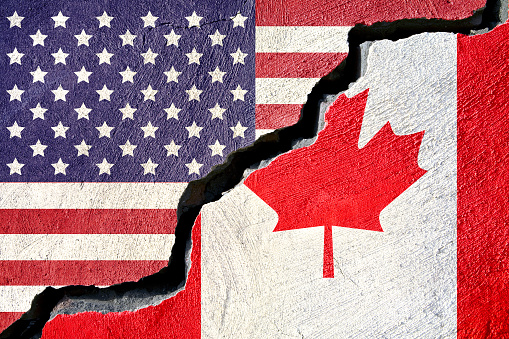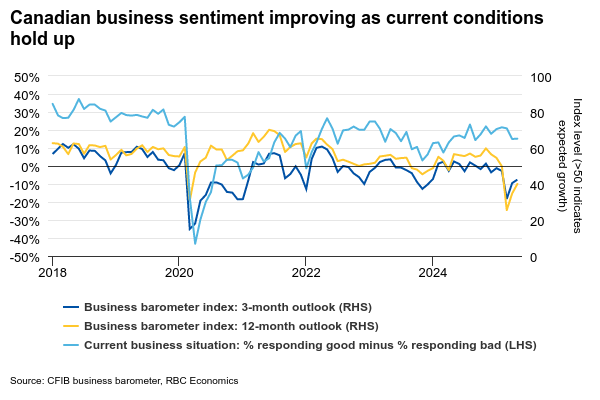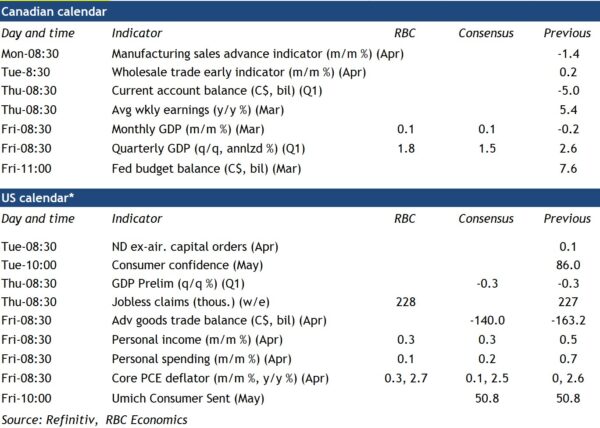We expect gross domestic product data on Thursday will show the Canadian economy grew by 1.8% annualized in Q1.
The catch is that most of the increase came early in the quarter from a 0.4% rise in January. GDP contracted 0.2% in February from January as the federal GST tax holiday ended, severe weather disrupted transportation activity, and weakened sentiment from international trade uncertainty began to weigh on the economy. A recovery in the transportation sector and a bounce back in oil production in March likely led to a 0.1% increase in GDP—consistent with Statistics Canada’s advance estimate.
For expenditures, we expect to see an increase in household consumption in Q1 that was partially offset by a contraction in residential investment as home resales cooled. Business investment likely inched higher, but is expected to soften in the coming quarters as businesses freeze spending plans amid disruptive trade policies.
April’s manufacturing sales on Monday, wholesale sales on Tuesday, and the preliminary April GDP estimate will be closely watched for signs of softening in the economy extending into Q2. Housing markets remain soft, and trade uncertainty will likely continue to dampen business investment. Employment would have declined in April without temporary federal election hiring. Manufacturing has already posted its largest one month of job losses (-30,600) since the pandemic.
There are still spots of resilience in the economy. Our RBC cardholder tracking shows consumer spending has remained resilient despite plunging confidence, aligning with StatsCan’s advance estimate of retail sales rising 0.5% in April following a 0.8% March gain. And while businesses still report significant worries about the future outlook, the assessment of current conditions was firmer in data from the Canadian Federation of Independent Business this week.
Canada’s still facing the lowest tariff rate among all U.S. trade partners after being exempted from reciprocal tariffs in April. Job opening data in early May from Indeed.com shows signs of stabilization in labour markets. Overall, we expect Canadian GDP growth to slow significantly this year, but not contract as strength in domestic demand continues to offset external weakness from trade turbulence.
Week ahead data watch





